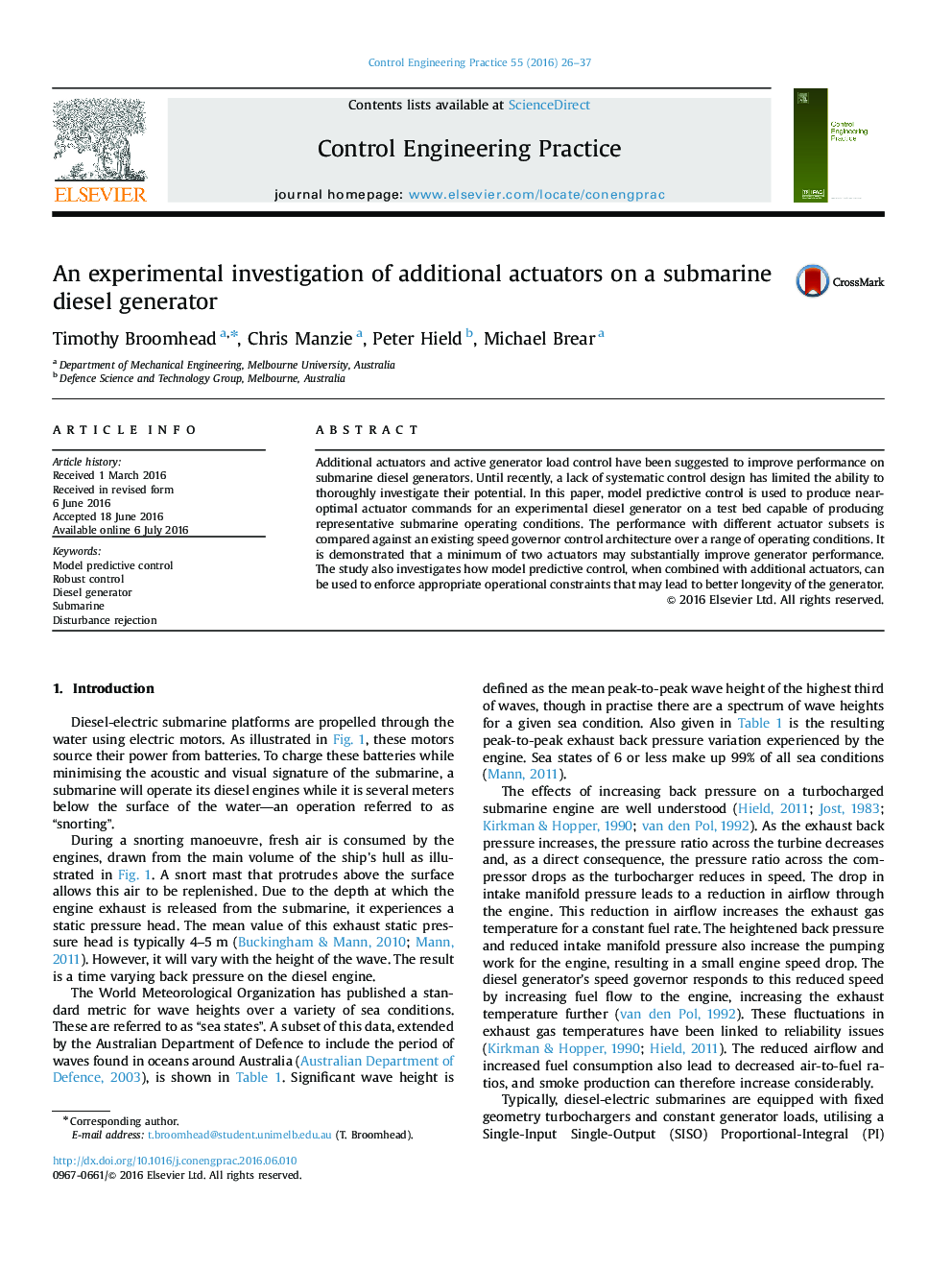| Article ID | Journal | Published Year | Pages | File Type |
|---|---|---|---|---|
| 698956 | Control Engineering Practice | 2016 | 12 Pages |
•An experimental investigation of engine actuators on a submarine diesel generator is conducted.•Submarine diesel generators operate in an environment where disturbances greatly impact engine performance.•Model predictive control is used to produce near-optimal actuator commands to investigate the benefits of additional actuators.•Generator performance significantly improves when using at least two actuators.•Adherence to additional system constraints is demonstrated when using three actuators.
Additional actuators and active generator load control have been suggested to improve performance on submarine diesel generators. Until recently, a lack of systematic control design has limited the ability to thoroughly investigate their potential. In this paper, model predictive control is used to produce near-optimal actuator commands for an experimental diesel generator on a test bed capable of producing representative submarine operating conditions. The performance with different actuator subsets is compared against an existing speed governor control architecture over a range of operating conditions. It is demonstrated that a minimum of two actuators may substantially improve generator performance. The study also investigates how model predictive control, when combined with additional actuators, can be used to enforce appropriate operational constraints that may lead to better longevity of the generator.
